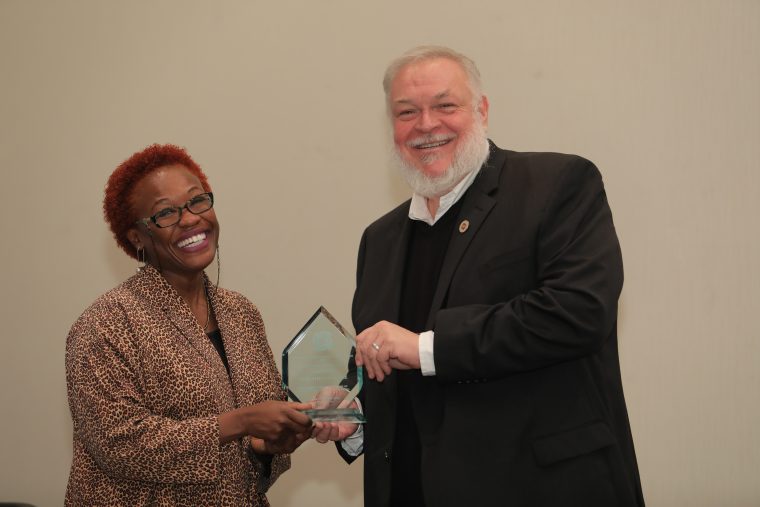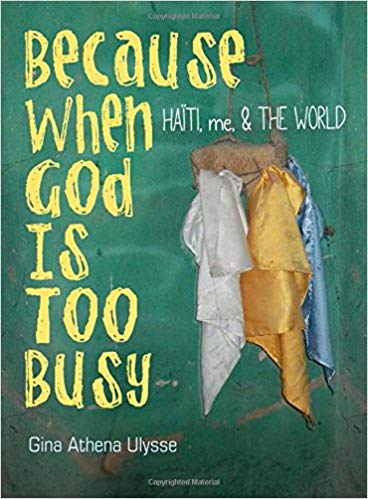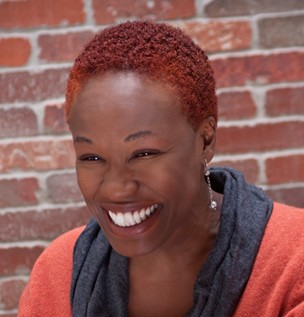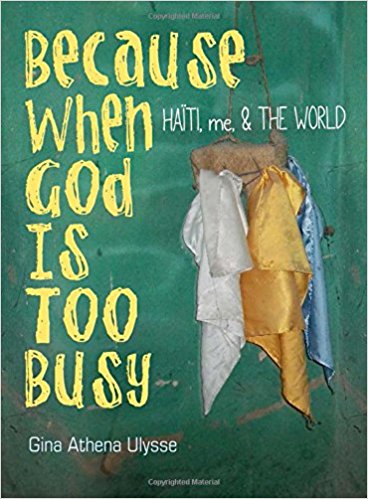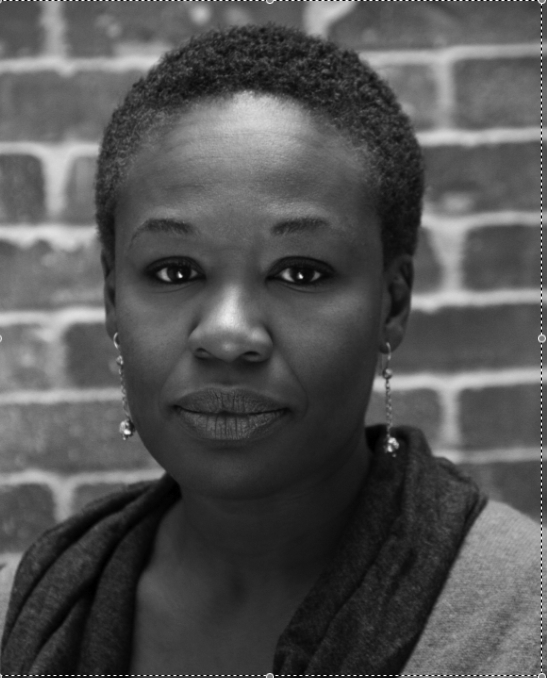In this recurring feature in The Wesleyan Connection, we highlight some of the latest news stories about Wesleyan and our alumni. Wesleyan in the News NPR: "Book Review: 'The Movie Musical!' Is a Symphony in Praise of the 'Razzmatazz' of the Genre" "Encyclopedic in scope, but thankfully not in structure, The Movie Musicals! is a downright delightful read," this NPR review of Corwin-Fuller Professor of Film Studies, Emerita, Jeanine Basinger's new book proclaims. The Movie Musicals! truly "dazzles" for its insight into the roles these films have played over the 20th century and into the 21st, the review states, noting, "And throughout the…
Professor of Anthropology Gina Athena Ulysse was recently honored with the Anthropology in Media Award (AIME) from the American Anthropological Association (AAA). Established in 1987, the annual award recognizes the successful communication of anthropology to the general public through the media. Ulysse was presented with the award at the association’s 2018 Annual Meeting in San Jose, Calif. on Nov. 14–18. According to AAA, Ulysse was honored for “her powerful and effective work communicating anthropological insights to the broad general public. Through her anthropological writings, blogs, talks, and her widely shared performance pieces, Ulysse has worked to expand her reach, presence,…
Four Wesleyan University Press–affiliated authors were nominated for book awards this month. Pulitzer Prize–winning poet Rae Armantrout is one of 10 contenders for the National Book Award for Poetry. Her collection, Wobble (Wesleyan University Press, 2018) was named to the award's longlist on Sept. 13. Finalists will be revealed on Oct. 10. Teetering on the edge of the American Dream, Armantrout’s Wobble seeks to both playfully and forcefully evoke the devastation of a chaotic, unstoppable culture. Two authors were named 2018 CT Book Awards Finalists by the Connecticut Center for the Book, a Connecticut Humanities program. The awards recognize and honor authors and…
In response to an exhibit focusing on the Haitian Revolution of 1791, Gina Athena Ulysse, professor of anthropology, presented a commissioned work on March 16 at the British Museum. The exhibit, titled "A revolutionary legacy: Haiti and Toussaint Louverture," featured a selection of objects, artworks, and poetry from the 18th century to the present. Objects explored the legacy of the Haitian Revolution and its leader Toussaint Louverture. Louverture was one of the leading figures in the Haitian Revolution, which began in 1791 as an uprising of enslaved men and women in what was then a French sugar colony. It culminated with the outlawing…
A book by Professor of Anthropology Gina Athena Ulysse was long-listed for the PEN Open Book Award. The PEN Open Book Award confers a $5,000 prize upon an author of color to celebrate racial and ethnic diversity within the literary and publishing communities. Ulysse's first poetry collection, Because When God Is Too Busy: Haiti, me & THE WORLD, was published in 2017 by Wesleyan University Press. The lyrically vivid meditative journey embraces and reclaims a revolutionary Blackness that has been historically stigmatized and denied. Ulysse crafts experiments with “ethnographic collectibles” of word, performative sounds and imagery to blur genres and…
Wesleyan Professor of Anthropology and Feminist, Gender and Sexuality Studies Gina Athena Ulysse's newest publication, Because When God Is Too Busy: Haiti, Me, & The World, (Wesleyan University Press, April 2017), is a collection of poems, performance texts, and photographs that explores longing for a sacred and ancestral past—now entangled by Western and postcolonial inheritances. Both a lyrical and meditative work, the publisher calls it "a poetic journey through silence, rebellious rage, love, and the sacred." In it, Ulysse blurs the lines between genre and medium, as well as the personal and geopolitical. Edwidge Danticat, a former MacArthur Fellow and National…
Gina Athena Ulysse, professor of anthropology, recently contributed to the #BlackLivesMatterSyllabus, a new project by The Anthropoliteia, an online anthropology journal. Ulysse also is professor of feminist, gender and sexuality studies. One of the main goals of the project is to “mobilize anthropological work as a pedagogical exercise addressing the confluence of race, policing, and justice." In this vein, Ulysse uses her entries to analyze the film series “Race: The Power of Illusion.” As part of the Race: Are We So Different? Project created by the American Anthropological Association, the film serves as a teaching tool for Ulysse in her own…
In a July 11 Roth on Wesleyan blog, President Michael Roth responds to two recent killings of black men by police officers in Louisiana and Minnesota, and the murders of five police officers in Texas. In the blog, titled, "On What Matters" Roth shares his own thoughts and the reflections of others that he found meaningful. He writes: Too often I have written blog posts about tragedies, violence, injustice. From attacks in other parts of the world to devastation right here in the USA, I have expressed sorrow, anger—and often a feeling of solidarity with those who have suffered, are suffering. Readers have pointed out that…
In her latest essay on The Huffington Post, Professor of Anthropology Gina Athena Ulysse takes on the matter of U.S. foreign food aid policy vis-a-vis Haiti, which she writes is undermining farmers in the Caribbean nation. She focuses on mamba, the Kreyòl word for peanut butter, which she fondly recalls being made by locals when she was growing up in Haiti. "To me, mamba is as quintessentially Haitian as basketball is (North) American. Now, it faces risks as another charitable gift of food aid undermines Haitian autonomy by threatening to bench local farmers’ peanuts production, our cultural practices, and even our tastes," she writes. "This is not…
Gina Athena Ulysse, professor of anthropology, professor of feminist, gender and sexuality studies, writes an "Ode to Haiti's Neo-Comedians" in The Huffington Post about Haiti's recently cancelled election runoff. The title of her essay refers to Graham Greene's The Comedians, a book whose description read: "Set in Haiti, amid an atmosphere of brutal force and terror-ridden love, three desperate people work out their strange destinies." Ulysse writes: Relevance of The Comedians is apparent in Haiti's recently cancelled election runoff that was set for this past Sunday. Indeed, until then, the outgoing president Michel Martelly, a chap with dictatorial tendencies who leads the "Bald Headed Haitian Party"—insisted on…
A new task force announced by President Michael Roth will explore the establishment of a multicultural/gender/first-generation resource center as part of Wesleyan's broader effort to improve equity and inclusion on campus. The task force will be tri-chaired by Gina Ulysse, professor of anthropology, professor of feminist gender and sexuality studies; Antonio Farias, vice president for equity and inclusion and Title IX officer; and Shardonay Pagett ’18. Their initial recommendations are expected to be published in February with final recommendations by May 1. "It need hardly be said that making our campus more equitable and inclusive is a communal goal and…
Professor of Anthropology Gina Athena Ulysse is the author of two new essays on The Huffington Post. In "Pedagogies of Belonging," she writes about her experience working with students of color as they face the realities of structural racism, and she challenges institutions to go beyond rhetoric, to face up to the difficult challenges of moving onto a path of greater belonging. The essay begins: There is a conversation Black faculty often have with Black students that we rarely mention in public, let alone in mixed company. The tone of this exchange differs to some extent if the student are U.S.…


